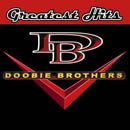Music |
The Doobie Brothers Greatest Hits
By
Published: Jan 01, 2005
Category:
Rock
Soon after I launched Head Butler, a friend told me about The Yummy List, an e-mail of recommendations that Holly Gleason writes, as inspiration dictates and time permits. On the “great minds think alike” theory, I signed up — and was soon dazzled by Holly’s range of interests, her total enthusiasm for what she loves, her willingness to share her emotions and her all-around expertise as a writer.
The writing skill is no surprise. As a rock critic, Holly has published in Rolling Stone, Creem, The New York Times, The Los Angeles Times, Musician, Spin, Trouser Press — and on and on.
Holly is now the queen of Nashville music publicists and managers, the intellectual and emotional seamstress for so many bands. Kenny Chesney, John Prine and Sawyer Brown are among her current clients; her wall of fame includes Brooks & Dunn, Rodney Crowell, Patty Loveless, Pat Green, Terri Clark, Lee Ann Womack, Marshall Chapman, the Nitty Gritty Dirt Band — and on and on.
Yesterday morning brought an unexpected e-mail from Holly. Not a Yummy List. A memorial essay for Keith Knudsen, 56, the drummer for The Doobie Brothers and, later, for Southern Pacific. Knudsen, who died on February 8, was obviously a world-class musician. Less obviously, he was a remarkably kind and centered man, and a very big influence on Holly Gleason.
Holly’s words deserve a larger audience. It’s a privilege to be their messenger and deliver them — and links to Keith’s Knudsen’s music — to you. And should you want to get The Yummy List, just write to Holly at ducambon@aol.com .
====================================
Girl Companion to the Boys of the Road Loses a Friend
The e-mail was just there. With his name in the subject line. Figured it was a new e-mail address or phone number, being passed on by a mutual friend. “Passing on” was definitely the subject — but not contact information, unless “care of his eternal reward” was the return address. My dear friend — and mostly long-lost companion — Keith Knudsen had died of pneumonia at 56.
Keith Knudsen, the wiry spider monkey drummer from the Doobie Brothers who propelled “Taking It to the Streets” and “China Grove,” left the Doobies Farewell Tour and started a country rock demi-supergroup called Southern Pacific with fellow Doobie John McFee, Credence Clearwater Revivalist Stu Cook and a hot-as-asphalt singer named Tim Goodman. When Elvis/Emmylou Harris veteran Glenn D. Hardin bowed out, they brought in a young turk keyboard player named Kurt Howell — and they took to the road with a vengeance.
Somewhere in the transition, when the hype was boiling and the music was settling, they came to Fan Fair in Nashville. Big buzz — the big rock stars. And somehow they ended up with a baby girl rock critic with stars in her eyes, for a dinner at this seafood buffet that reeked of wharf, looked of faded and failing antebellum mansion and hosted major tables.
And so it was, this tiny girl made friends — with the rock stars. The very thing Lester Bangs warns William Miller about in Cameron Crowe’s not-so-veiled autobiography “Almost Famous.” They were — all five — smart, urbane, deeply witty. And they could connect both on the surface and deep.
It was a magical introduction into one of those bands that every kid I knew growing up adored. Neil Young would be daunting, a measured, pay-attention affair. But Keith Knudsen and his friends, they were far more come-on-down-and-hang — and they probably removed any sense of gap for my future dealings with other such celestial beings.
Over the next three, four years, it seemed, Southern Pacific dotted my life. And as riotous as the times spent were, there were also a great many deeply human moments. Because that was the line Keith Knudsen walked: see the humor, don’t miss the grace, share what you’ve learned, open your heart.
From Fan Fair, where everyone clamored for the attention (Doobies! Credence!) and I watched from the outer banks — every so often being beckoned in — the assault on America began. They played anywhere that had a stage, often traveling in vans. These were not superstar prima donnas, but guys who wanted to play — often, long, hard. They got the joy of the trajectory of a set that went well


